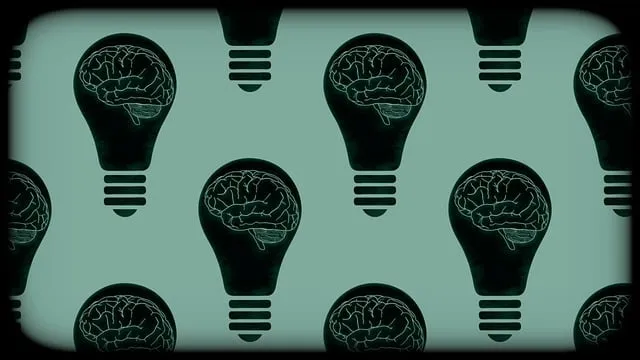Mental illness diagnosis faces challenges due to symptom overlap and variability, exacerbated by healthcare provider training gaps. Kaiser Permanente mental health phone number Colorado Springs addresses these issues through early intervention initiatives, tailored care, and advanced tools. They offer a dedicated phone line for easy access to support, Self-Care Routine programs, and Mental Wellness Coaching emphasizing emotional intelligence. Professionals leverage risk assessment models, analytics, machine learning, and digital technologies like mobile apps and virtual reality therapy sessions. By integrating cultural sensitivity, building resilience, and promoting provider self-care, they enhance diagnosis accuracy and patient outcomes, setting a standard for patient-centric mental healthcare.
Mental illness diagnosis accuracy is a critical aspect of patient care, and ongoing efforts are needed to improve outcomes. This article explores the complex challenges faced in diagnosing mental health conditions, highlighting successful initiatives like Kaiser Permanente Colorado Springs’ focused assessment strategies. We delve into innovative tools and patient-centric approaches that enhance accuracy. Additionally, continuous training and education are crucial for building a resilient healthcare system. For more information on mental health resources, contact the Kaiser Permanente mental health phone number in Colorado Springs.
- Understanding the Challenges of Mental Illness Diagnosis
- Kaiser Permanente Colorado Springs: A Focus on Accurate Assessment
- Innovative Tools and Techniques for Improved Diagnosis
- Patient-Centric Approaches to Enhance Diagnosis Accuracy
- Continuous Training and Education: Building a Resilient Healthcare System
Understanding the Challenges of Mental Illness Diagnosis

Mental illness diagnosis accuracy can be significantly hindered by several challenges. One major hurdle is the complex nature of mental health conditions themselves, which often present with overlapping symptoms and vary greatly in severity. This complexity necessitates a thorough understanding of each individual’s unique experience and context. Misdiagnosis or delayed diagnosis may occur due to insufficient training among healthcare providers, leading to potentially detrimental effects on patients’ well-being.
Additionally, the subjective aspect of mental health assessment adds another layer of difficulty. Factors such as cultural background, personal beliefs, and emotional expression can influence how individuals articulate their experiences. For instance, a patient’s description of persistent sadness might be different in various cultures, requiring clinicians to be sensitive to these nuances. To improve diagnosis accuracy, healthcare systems like Kaiser Permanente Colorado Springs offer mental health phone numbers, providing accessible resources for those seeking support or guidance. These initiatives promote early intervention and ensure individuals receive tailored care, including resilience-building techniques, positive thinking strategies, and self-esteem improvement programs, that cater to their unique needs.
Kaiser Permanente Colorado Springs: A Focus on Accurate Assessment

Kaiser Permanente Colorado Springs has made significant strides in enhancing mental health diagnosis accuracy through innovative approaches. They prioritize comprehensive and accurate assessments, ensuring patients receive appropriate care from the outset. This focus is evident in their dedicated mental health phone line, providing easy access to professional support. By offering this service, Kaiser Permanente aims to destigmatize mental health concerns and empower individuals to take charge of their well-being.
The organization’s commitment extends to developing Self-Care Routine programs and Mental Wellness Coaching initiatives. These initiatives focus on fostering emotional intelligence—a key aspect of overall mental wellness. Through these strategies, Kaiser Permanente Colorado Springs encourages proactive self-care, empowering patients to manage their mental health effectively while also ensuring more precise diagnosis and treatment planning.
Innovative Tools and Techniques for Improved Diagnosis

Mental health professionals at Kaiser Permanente mental health phone number Colorado Springs are leveraging innovative tools and techniques to enhance diagnosis accuracy. One such method involves advanced risk assessment models that go beyond traditional questionnaires, incorporating sophisticated analytics and machine learning algorithms to predict potential mental health risks with greater precision. These models account for a wide range of factors, including biological markers, environmental influences, and individual coping mechanisms, enabling healthcare providers to tailor interventions effectively.
Furthermore, the integration of digital technologies has played a pivotal role in improving diagnosis. Mobile applications designed for mental health monitoring offer users tools for tracking symptoms, practicing mindfulness, and developing coping skills. By providing real-time data and personalized feedback, these apps empower individuals to actively participate in their care. Additionally, virtual reality (VR) therapy sessions are gaining popularity as immersive experiences that help patients confront fears, manage anxiety, and build confidence in a controlled environment. This multifaceted approach not only boosts the accuracy of mental illness diagnoses but also enhances patient outcomes through comprehensive support systems.
Patient-Centric Approaches to Enhance Diagnosis Accuracy

In recent years, healthcare providers like Kaiser Permanente mental health phone number Colorado Springs have been actively pursuing patient-centric approaches to enhance diagnosis accuracy. This involves a shift in focus from traditional, one-size-fits-all methods to personalized care that considers each patient’s unique background, experiences, and cultural context. By integrating Cultural Sensitivity in Mental Healthcare Practice, professionals can better understand the nuances of their patients’ lives, leading to more accurate assessments. For instance, resilience building and social skills training have proven effective in helping individuals express their emotions and navigate challenges, providing vital insights that contribute to precise diagnoses.
These patient-centric strategies not only improve diagnosis accuracy but also foster a deeper connection between patients and healthcare providers. By acknowledging the role of cultural factors and life experiences in mental health, professionals can create a supportive environment where individuals feel comfortable sharing their stories. This openness is crucial for identifying underlying issues accurately and developing tailored treatment plans that address specific needs, ensuring better outcomes for everyone involved.
Continuous Training and Education: Building a Resilient Healthcare System

Mental health professionals at Kaiser Permanente mental health phone number Colorado Springs emphasize the significance of continuous training and education in enhancing diagnosis accuracy. This involves regular workshops, seminars, and online courses that keep practitioners updated on the latest research, treatment methodologies, and cultural sensitivities. By staying informed about emerging trends, healthcare workers can better understand and interpret symptoms, leading to more precise diagnoses. Continuous learning also fosters a resilient healthcare system where professionals are equipped to handle complex cases with confidence.
In addition to formal education, self-care routine development for better mental health is encouraged. Compassion cultivation practices and self-esteem improvement techniques play a crucial role in maintaining professionals’ well-being, ensuring they remain empathetic and effective in their interactions with patients. These efforts collectively contribute to a more robust healthcare environment where accurate diagnoses are not just an aim but an achievable reality.
Mental illness diagnosis accuracy is a multifaceted challenge that demands continuous improvement. As highlighted by innovative tools, patient-centric approaches, and ongoing training, such as those exemplified by Kaiser Permanente Colorado Springs, significant progress can be made. By prioritizing accurate assessment and adopting resilient healthcare systems, we can better support individuals navigating mental health issues. For more information and resources, interested parties are encouraged to contact the Kaiser Permanente mental health phone number in Colorado Springs for expert guidance and care.






